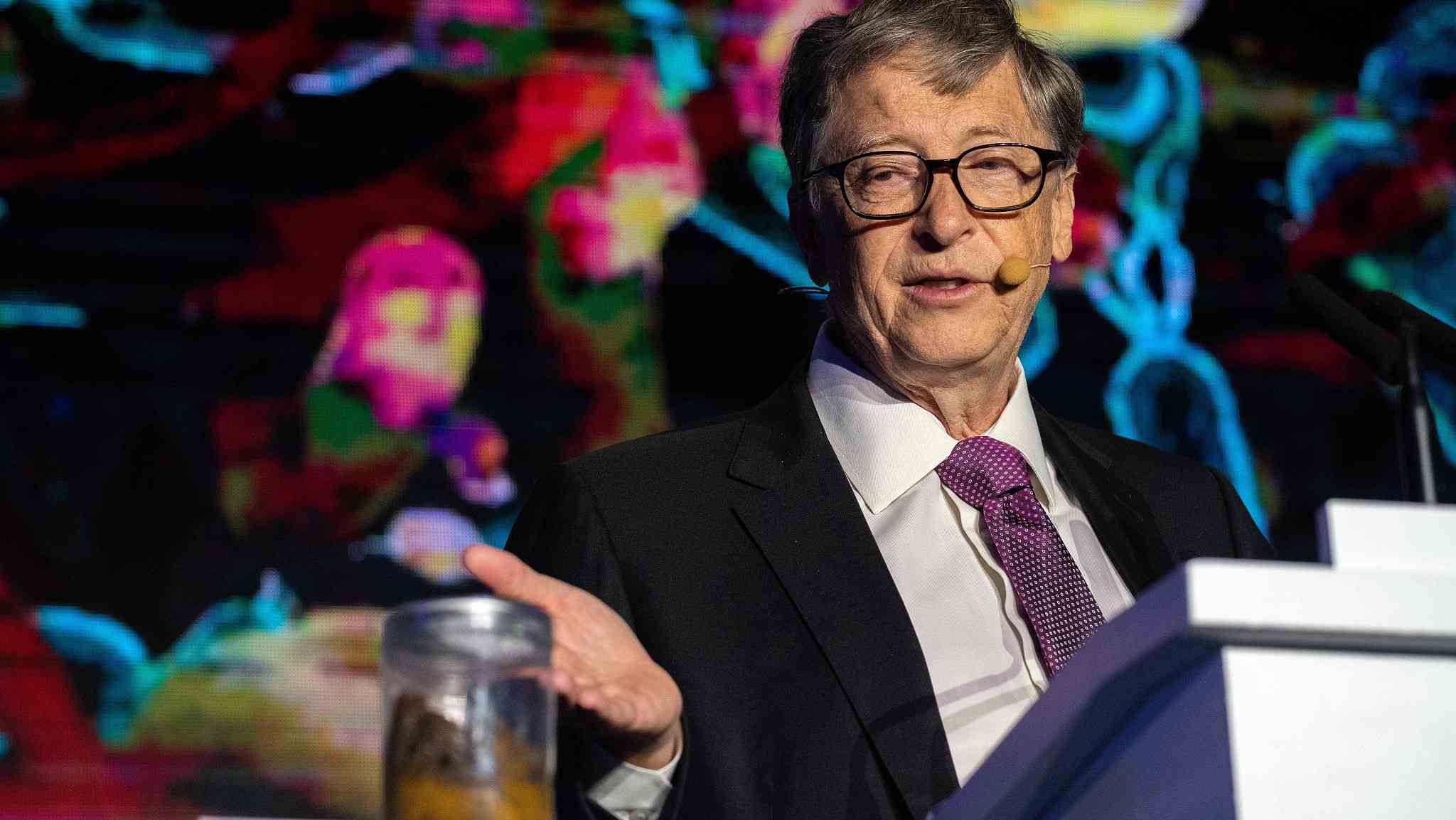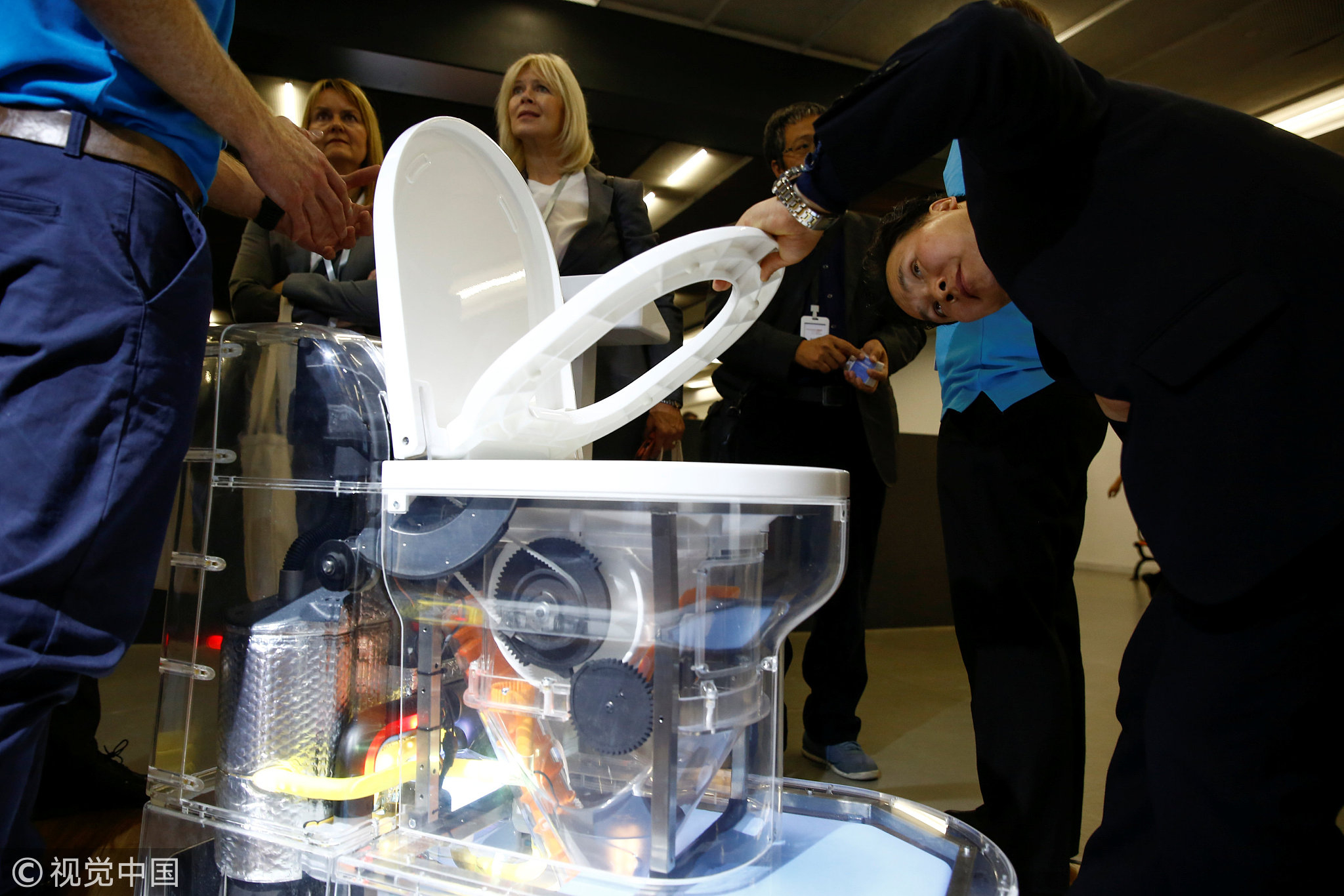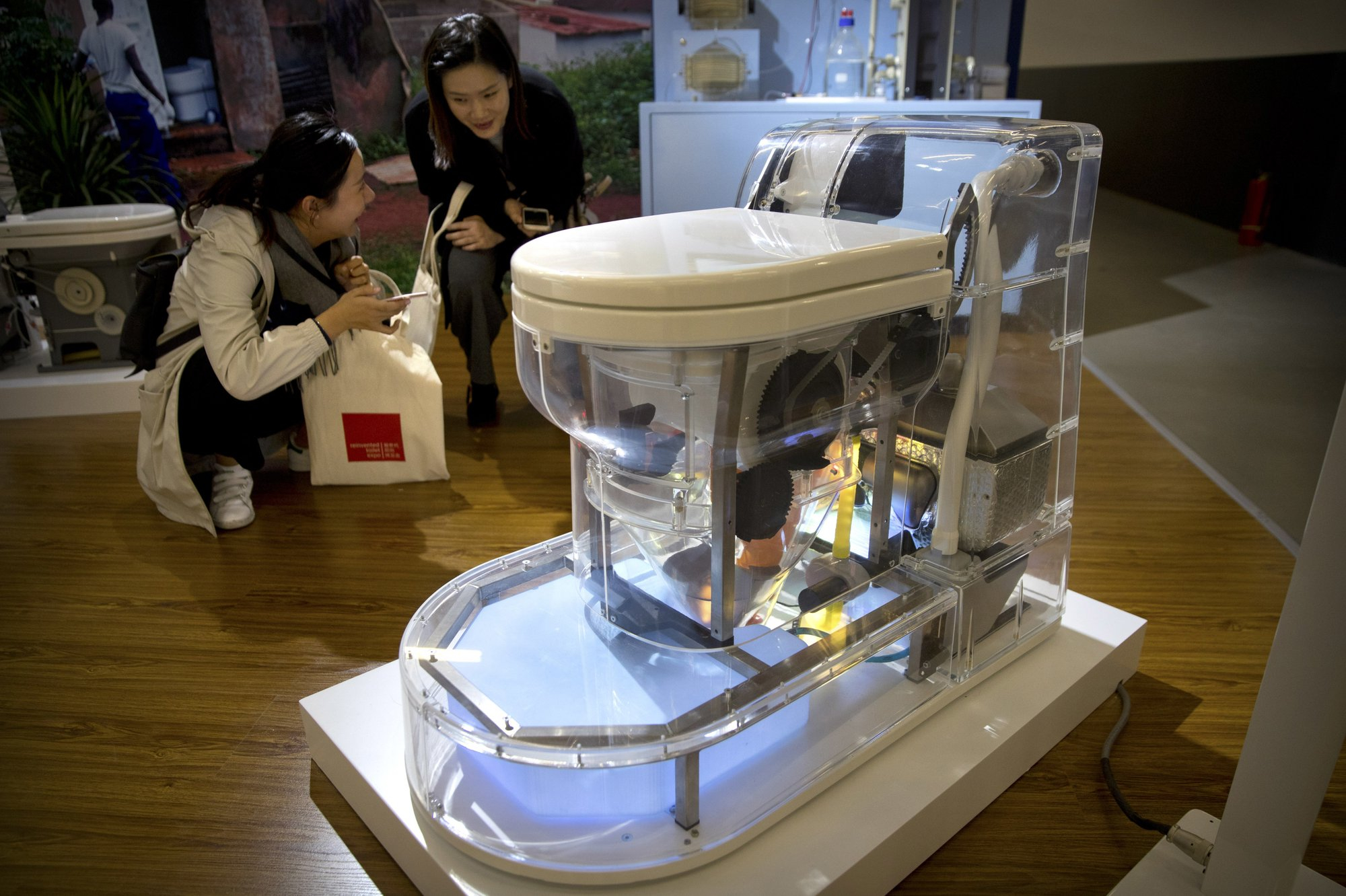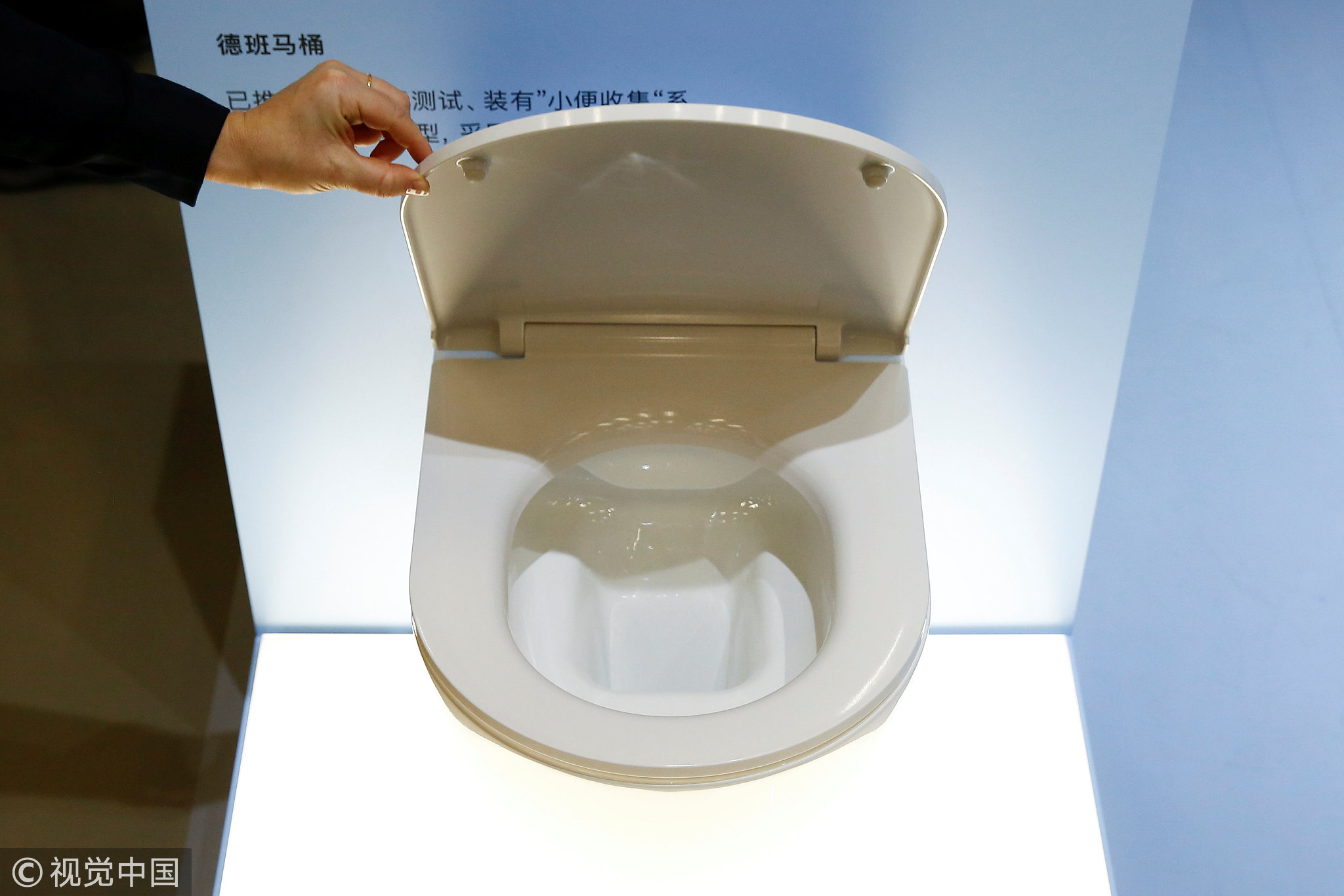
Tech & Sci
18:08, 07-Nov-2018
With a jar of poo in hand, Bill Gates unveils futuristic toilets in China
Updated
18:02, 10-Nov-2018
By Yu Yiwei
01:59

Could you ever imagine that one day, you would see a billionaire giving a talk with a jar of poo in his hands? That is what Bill Gates did as he kicked off "Reinvented Toilet Expo" on Tuesday in Beijing.
With the jar in his hand, he said it could contain as many as "200 trillion rotavirus, 20 billion shigella bacteria, and 100,000 parasitic worm eggs." Diseases caused by these microbes can kill almost 500,000 children under the age of five every year.

A toilet designed by Cranfield University at the Reinvented Toilet Expo showcasing sewerless sanitation technology in Beijing, China November 6, 2018. /VCG Photo
A toilet designed by Cranfield University at the Reinvented Toilet Expo showcasing sewerless sanitation technology in Beijing, China November 6, 2018. /VCG Photo
At the expo, the US billionaire philanthropist unveiled a futuristic toilet that does not need piped-in water or sewers. Instead, it uses chemicals to convert human feces into by-products such as water and fertilizer.
The new generation toilet is called omniprocessor, which can kill noxious pathogens in feces and costs less than five cents a day to operate.

The new generation toilets do not need piped-in water or sewers, reflecting the significant advances in sanitation. /AP Photo
The new generation toilets do not need piped-in water or sewers, reflecting the significant advances in sanitation. /AP Photo
"The current toilet simply sends the waste away in the water, whereas these toilets don't have the sewer. They take both the liquids and solids and do chemical work on it, including burning it in most cases," Gates told Reuters.
Over the past few years, Gates has worked on developing a waterless toilet. Since 2011, the Bill and Melinda Gates Foundation, the world's largest private philanthropic organization, has invested more than 200 million US dollars to developing safe sanitation technology.
Poor sanitation: a serious issue in the world
However, sanitation is not improving fast enough. At present, more than half of the world's population lack safe sanitation facilities. According to the World Health Organization, around 2.3 billion people suffer from a lack of basic sanitation facilities such as toilets or latrines.
UNICEF estimates that 4.5 million people around the world use unsafe managed sanitation. The organization says 480,000 children under five years old die from diarrhea every year, mostly in South Asia and sub-Saharan Africa.

Toilet facilities are important for people's health. /VCG Photo
Toilet facilities are important for people's health. /VCG Photo
"We are on the cusp of a sanitation revolution," Gates said. "It's no longer a question of if we can do it. It's a question of how quickly this new category of off-grid solutions will scale. We don't know exactly how long that will take, but we do know it can't happen fast enough."
In 2015, Chinese President Xi Jinping called for a three-year "toilet revolution" at tourist sites. By October 2017, 68,000 public toilets have been built and renovated at tourist sites around the country, exceeding the target by 19.3 percent.
On November 19, 2017, China's National Tourist Administration published a new three-year plan to build and renovate 64,000 public toilets in the country from 2018 to 2020, focusing on tourist sites.

SITEMAP
Copyright © 2018 CGTN. Beijing ICP prepared NO.16065310-3
Copyright © 2018 CGTN. Beijing ICP prepared NO.16065310-3